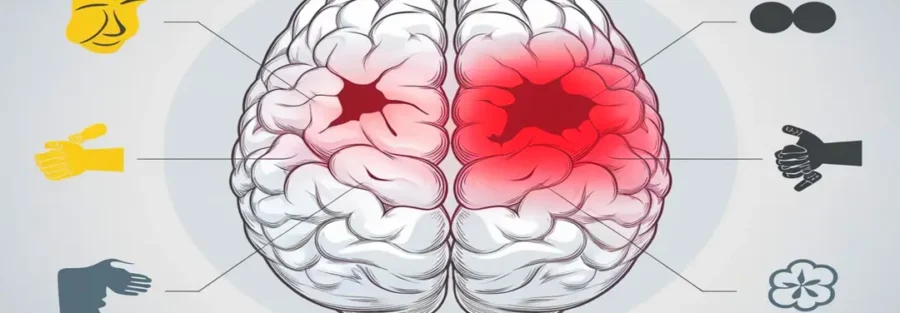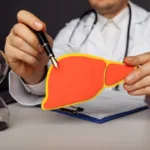Stroke Surgery in Dhaka: When and Why You Might Need It
When a stroke strikes, every second counts. It’s not just a medical emergency—it’s a race against time to save brain function, independence, and life itself. While many strokes can be treated with medication, in severe or complex cases, surgery becomes a life-saving necessity. In Dhaka, stroke surgery is no longer out of reach. With specialists like Professor Dr. Md. Shafiul Alam, patients now receive advanced neurovascular care, including complex surgical procedures tailored to each case. Whether it’s an ischemic blockage or a hemorrhagic bleed, Dr. Alam’s approach to stroke surgery in Dhaka provides hope when time and options are limited.
What Is a Stroke?
A stroke occurs when blood flow to the brain is interrupted, depriving brain cells of oxygen and nutrients. Damage can begin within minutes. There are two major types:
Ischemic Stroke
Caused by a blood clot blocking a vessel. It’s the most common type, accounting for 80% of strokes. Can be treated with medication or clot-removal surgery.
Hemorrhagic Stroke
Caused by ruptured blood vessels that bleed into the brain. Often needs surgical intervention to remove blood or repair aneurysms.
Warning Signs of a Stroke
- Sudden weakness or numbness (especially one side of body)
- Slurred speech or inability to understand others
- Vision problems or dizziness
- Severe headache with no known cause
Use the FAST test:
- Face drooping, Arm weakness, Speech difficulty, Time to call emergency help
Stroke Treatment in Bangladesh – Medical vs Surgical
In early stages, doctors attempt medical management using:
- Thrombolytics – to dissolve clots (e.g., tPA)
- Blood thinners – for clot prevention
- Anti-hypertensives – to reduce pressure in bleeding cases
But sometimes, medication isn’t enough.
When Is Stroke Surgery Needed?
Stroke surgery becomes necessary in these cases:
- Clot too large for medication (especially in major arteries)
- Brain swelling from bleeding or tissue death
- Aneurysms or AVMs (arteriovenous malformations) that caused hemorrhagic stroke
- Recurrent stroke risk due to narrowed carotid arteries
Delaying surgery in these conditions may result in:
- Permanent brain damage
- Paralysis
- Loss of speech
- Death
That’s why stroke patients in Dhaka are now being referred quickly to neurovascular surgeons like Professor Dr. Shafiul Alam for urgent evaluation.
Common Stroke Surgeries Performed by Dr. Shafiul Alam
Mechanical Thrombectomy
A catheter is used to physically remove the clot from a large artery. Highly effective for ischemic stroke patients within 6–24 hours.
Craniotomy
Performed for hemorrhagic stroke, removing blood clots or relieving pressure. May involve repairing ruptured blood vessels.
Aneurysm Clipping or Coiling
Used for burst blood vessels in the brain. Clips or coils are inserted to stop bleeding and prevent rupture.
Carotid Endarterectomy
Clears plaque from narrowed neck arteries to prevent future strokes.
Dr. Alam customizes each surgery based on the patient’s condition, age, and imaging findings. His goal is to protect brain function, restore blood flow, and support long-term recovery.
Emergency Stroke Care – The Golden Window
Time is brain. Stroke survival and recovery depend on how fast treatment begins.
- First 3 hours: Best chance for medical or surgical success
- Beyond 6 hours: Limited options; brain damage becomes irreversible
- 24/7 readiness is critical
Dr. Alam and his team are equipped for rapid diagnosis with CT, MRI, and angiography tools, ensuring patients are treated within the golden window.
Recovery After Stroke Surgery
Post-surgical care is critical. Dr. Shafiul Alam ensures each patient receives:
- Neuro ICU care with 24/7 monitoring
- Rehabilitation therapy for speech, movement, and cognition
- Psychological support for patients and families
- Customized recovery plans with long-term follow-up
Patients often begin light movement within days and recover gradually over months, depending on the stroke severity and response to rehab.
Why Choose Professor Dr. Md. Shafiul Alam for Stroke Surgery
- Over 25 years of neurosurgical experience in Bangladesh
- Expert in neurovascular and minimally invasive brain surgery
- Handles stroke emergencies 24/7
- Uses global protocols for clot removal, aneurysm repair, and brain decompression
- Known for ethical care, clear communication, and lifelong support
With Dr. Alam, patients are not just treated—they’re empowered to heal.
FAQs About Stroke and Surgery
Q: Can stroke be treated without surgery?
Yes, if caught early and clot-dissolving medications are effective. Surgery is only required for large clots, brain swelling, or bleeding.
Q: What are the risks of stroke surgery?
Risks depend on the type of surgery, patient age, and overall health. But in expert hands, benefits often outweigh the risks—especially in emergencies.
Q: Can stroke patients return to normal life?
Many do. With early treatment and rehab, patients often regain speech, mobility, and independence.
Q: How much does stroke surgery cost in Dhaka?
Cost varies based on hospital, procedure, and post-op care. Dr. Alam provides clear estimates during consultation.
Explore More Brain & Spine Treatments
- Emergency Neurosurgery in Dhaka
- Minimally Invasive Brain & Spine Surgery
- Brain Tumor Symptoms You Shouldn’t Ignore
- PLID Surgery in Dhaka
Looking to Learn More?
Protect yourself and your loved ones from stroke. Know the signs, act fast, and trust the right expert:





